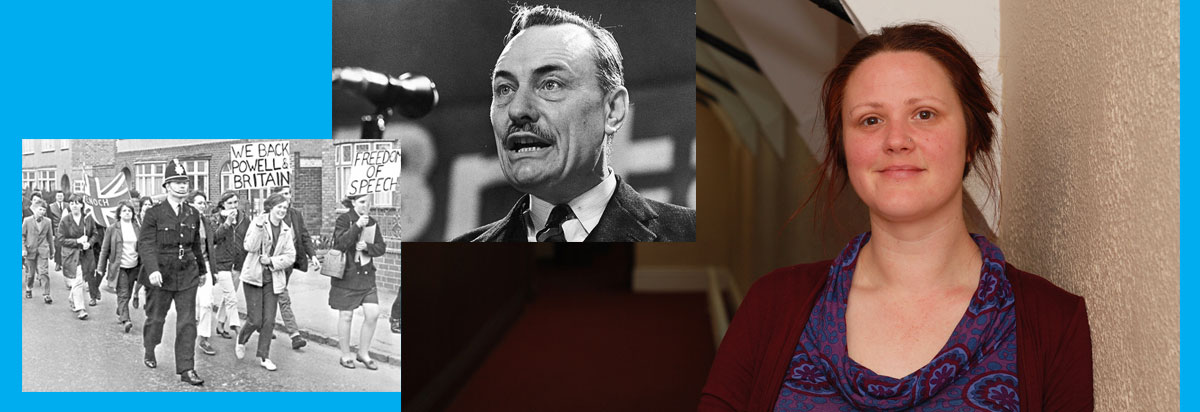 Pictured Conservative MP Enoch Powell and Huddersfield politics lecturer Dr Leonie Jackson
Pictured Conservative MP Enoch Powell and Huddersfield politics lecturer Dr Leonie JacksonDr Leonie Jackson is co-author of an article that analyses the 1967-1969 Wolverhampton Transport turban dispute and the famous speech by the MP Enoch Powell
ON the 50th anniversary of the notorious “Rivers of Blood” speech by MP Enoch Powell, an award-winning University of Huddersfield lecturer has taken part in a BBC documentary that probes the background to the inflammatory incident.
Dr Leonie Jackson, who lectures to sociology and politics students, is heard in Radio 4’s The Turban Bus Dispute, which recounts the row caused in Wolverhampton when a Sikh bus driver grew a beard and wore a turban, in defiance of local bus company rules. The ensuing controversy led to local MP Powell addressing a Conservative meeting in Birmingham on April 20, 1968. He predicted the rise of extreme racial violence and conflict in Britain.
“The Rivers of Blood speech has been understood as a national thing whereas it is clear from my research that it was actually inspired by this local industrial conflict in Wolverhampton. That’s what Powell was thinking of when he gave that speech,” said Dr Jackson.
She is co-author of an article in the journal Contemporary British History that analyses the 1967-1969 Wolverhampton Transport turban dispute, placing in the context of increased anxiety over immigration to the area. It traces narratives of the dispute through correspondence to the local newspaper and argues that the letters column elevated the issue from a trivial industrial dispute into one that symbolised deep anxieties about race and nation.
Dr Jackson’s research specialities include race and racialisation, Islamophobia and far-right radicalisation. She is the author of the recently-published book Islamophobia in Britain, which draws on a wide range of textual sources.
“I have concluded that Islamophobia can be understood as a form of Eurocentrism, that people use in order to make a claim on a particular social space,” said Dr Jackson.
“It is employed to assert that certain spaces should be governed by Western values, so you will see it used in local contexts when there are anti-mosque protests, or in European contexts in arguments over the hijab and burka, etc. You also see it in international contexts, with Trump’s Muslim ban being a good example.”
Dr Jackson came to the University of Huddersfield – her first teaching post – in 2017 and her impact meant she was nominated by her new colleagues for the Bernard Crick Award for outstanding teaching by a new entrant to the profession, bestowed annually by the Political Studies Association. Testimonials from students were part of the portfolio of evidence that impressed PSA judges, and Dr Jackson received the award at the association’s 2018 conference, held in Cardiff.
The verdict of award judges was that: “Leonie Jackson clearly is an excellent teacher. There are examples of how she actively engages her students in their learning with examples drawn from a range of different kinds of learner. She has identified sensitive issues related to teaching politics and how she overcame them and she has shared her ideas and strategies with colleagues.”
- The BBC Radio 4 documentary The Turban Bus Dispute, presented by journalist and author Sathnam Sanghera, first broadcast on 16 April 2018, can be heard via the BBC iPlayer (http://www.bbc.co.uk/programmes/b09z4fz1).
More News
Second year at the top for teaching
Huddersfield heads figures for teaching excellence in English higher education
Huddersfield wins Global Teaching Excellence Award
The University beat 26 other finalists to become the first winner of the award pioneered by the Higher Education Academy
Uni receives Gold in Teaching Excellence Framework
The University is one of only two to achieve a Gold Award in Yorkshire and the Humber
